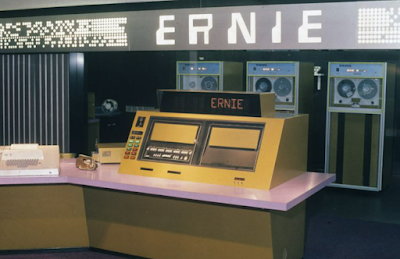What is “general knowledge”? For me, it sounds like having no interest in sport, but still knowing what the Offside Rule is. I still don’t know what this rule is, but I know the Royal Mint issued a fifty pence coin in 2011 explaining it, for a series of coins marking the following year’s Olympic Games – at least, that much I know.
For this reason, I fare much better answering the questions on “University Challenge” than “[A] Question of Sport”. The former show covers a far wider range of subjects, and despite the relative obscurity of those, my interests mean I am more likely to have encountered them – anything I know about sport will have been picked up in passing, most likely from watching “[A] Question of Sport”. I like having a broad knowledge base, and I like how writing these articles help to maintain and broaden it further. It also means I do well at quizzes.
An article in the “Radio Times” by Ed Grenby about the BBC Radio 4 quiz tournament “Brain of Britain”, the week before its return on Wednesday 3rd August, had its host Russell Davies ruminating on how its contestants are finding the show’s questions harder. Each episode has three contestants, one continuing to answer questions until a wrong answer opens it to the other two to buzz in and take over, gaining an extra point if they achieve five correct answers in a row – something that only happened five times in the previous series.
This was put down to its contestants having to keep across a popular culture that is continuously expanding, as mentioned by question setter Elissa Mattinson: “It’s not just BBC1 and BBC2 now: contestants are expected to be aware of ‘Tiger King’, ‘Squid Game’ and ‘Succession’ as well as Shakespeare and classical music.” Mattinson said she has occasionally been asked to make questions easier, compromising by inserting clues into questions: “Which early 20th century poet...” Extending the range of the questions prevents the show from becoming “myopic”, but Mattinson also said the audience has to be impressed: “it’s ‘Brain of Britain’, so it’s got to be hard... They’ve got to be the elite of the population”. This fits in with Russell Davies recounting a low-scoring contestant retiring half-way through a recording, and another refusing to take part after getting all their rehearsal questions wrong.
From this, I gained the impression that a general knowledge has become harder to maintain without treating it like serious study – that you must know about everything, in case you are ever asked. I have never seen “Game of Thrones” – I have just never been interested – but while I know where I can look for information about the show, I don’t see it as crucial to know, because I am rarely ever in a situation where it is likely to come up. In the context of a quiz, you either have to be prepared to be answer anything, or hope to make an educated guess. I remember being asked about from which country Vietnam declared its independence in 1945 – I did not think of France, the correct answer, so I went geographically for China or Japan.
However, upon buying the copy of the “Radio Times” talking about “Brain of Britain”, a fact not reported elsewhere did come up: questions about science were effectively banned on the show in 1950s and 60s, when it was the “Ask Me Another” segment in a bigger quiz show, “What Do You Know”, because it was not believed anyone would understand them. The National Curriculum, and TV shows like “Tomorrow’s World” and “Horizon”, have made sure you need to have a knowledge of science in order to be proclaimed “Brain of Britain”.





